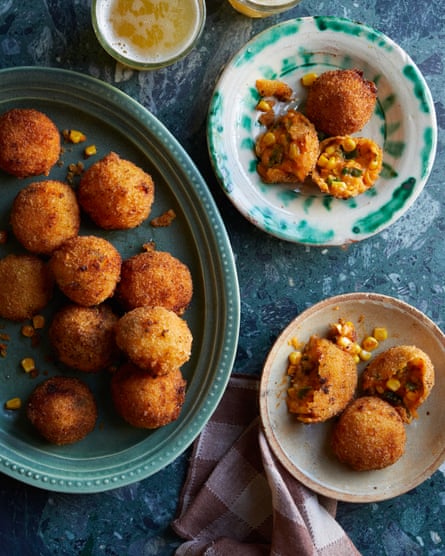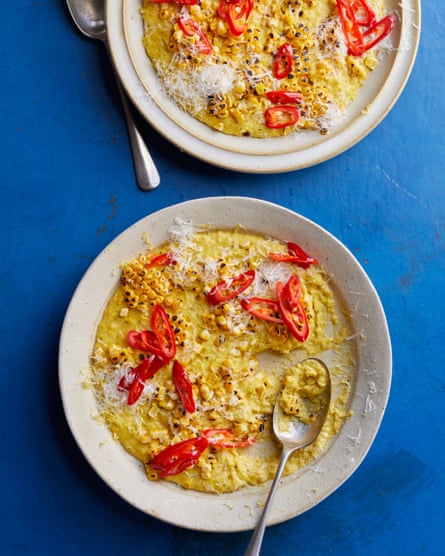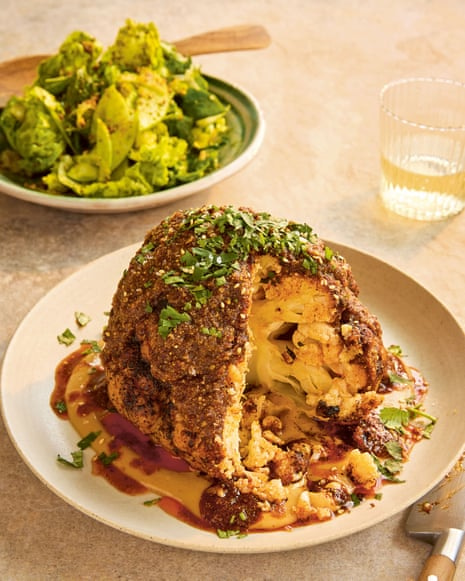Sweetcorn often triggers fond memories, especially as the harvest season wraps up. Its fleeting presence in markets is something Nigerians and many West Africans can relate to, given the anticipation for the freshest, sweetest cobs each year. In Nigeria, roasted corn by the roadside—often enjoyed with coconut or pear (ube)—is a classic street food tradition that bridges generations and communities. There’s just something about biting into corn roasted over open flame, smeared with creamy butter, and finished with a squeeze of lime or a touch of spicy pepper, that recalls childhood and conversations shared on balmy evenings.
This article explores three vibrant sweetcorn-based recipes, adapting them for local tastes and global audiences interested in bold, flavor-packed food. Nigerian readers will find familiar elements—grilled corn, spicy peppers, fresh seafood, and comforting creamy sauces—paired in new ways that expand the typical repertoire, while also connecting to broader African influences.
Charred Sweetcorn, Prawn, and Green Chilli Spaghetti
The marriage of sweet, smoky corn with succulent prawns and fiery green chillies (think ata rodo, jalapeño, or even the smaller bird’s eye variety) brings together classic flavors from Nigerian cuisine. For those eager for a twist, this dish takes inspiration from Kenyan streets while speaking directly to our love of vibrant, spicy food. If you like your meals hot, leave the seeds in the chillies for extra punch. Locally sourced tiger prawns and fresh sweetcorn are highly recommended for the best flavor and texture.
Prep 10 min
Cook 30 min
Serves 4
Ingredients:
• 3 ears of fresh sweetcorn
• 1 tbsp salt
• 400g spaghetti (local or imported brands both work)
• 100ml olive oil
• 8 garlic cloves, peeled and thinly sliced
• 2 green chillies (jalapeño, bird’s eye, or local substitute), finely sliced
• Zest and juice of 1 lemon
• 400g raw tiger prawns, cleaned and peeled
• Black pepper to taste
Grill corn on a hot griddle or charcoal flame (our local preferred method) for about 10 minutes, turning regularly until charred. Slice off the kernels and set aside, keeping the cobs.
In a large pot, boil pasta water, flavoring it by adding the reserved corn cobs and a tablespoon of salt. Cook spaghetti according to the package instructions. Drain, reserving some pasta water, and remove the cobs.
Meanwhile, gently heat the olive oil in a frying pan. Add sliced garlic, green chilli, and lemon zest, allowing the aromatics to infuse the oil for two minutes. Add prawns, increase the heat, and sauté until just pink (about 3–4 minutes). Toss in drained spaghetti, corn kernels, a splash of reserved water, lemon juice, and black pepper. Mix vigorously, adjust seasoning, and serve immediately.
For many Nigerians, this brings a new twist to familiar flavors—turning an everyday ingredient into a meal fit for family gatherings or special dinners. “The smokiness of corn and brightness of citrus are reminiscent of the suya experience,” observes Lagos-based chef Ngozi Okeke, noting how the balance of heat and sweetness appeals to local palates.
Sweetcorn, Gochujang and Cheddar Croquetas

Croquetas—originally a Spanish delicacy but now enjoyed across cultures—are deep-fried, golden bites with a velvety interior. This version introduces some heat with Korean gochujang (easily replaced by local Cameroon pepper paste or shito for a Ghanaian kick) and sharp cheddar, resulting in a snack Nigerians will love at parties, celebrations, or as a creative appetizer.
Prep 10 min
Chill 3 hrs
Cook 40 min
Freeze 1 hr
Makes 12
For the filling:
• 75g unsalted butter
• 100g plain flour
• 1–2 heaped tbsp gochujang (or local chilli paste)
• 400ml hot milk
• 150g extra-mature cheddar, grated
• 2 corn on the cobs or 250g defrosted frozen sweetcorn
• 5 spring onions, finely chopped (greens included)
• Sea salt and black pepper
Melt butter on medium heat, stir in the flour, and cook until the mixture becomes sandy. Add gochujang and cook for a short while, then whisk in the hot milk to form a thick béchamel. Simmer for about one minute, then remove from the heat. Stir in cheddar, sweetcorn, and spring onions. Season, cool to room temperature, cover, and chill for about two hours until firm.
Using wet hands, roll the mixture into 3cm balls and arrange on a lined tray. Freeze for an hour to help them hold their shape while frying.
For the coating:
• 3 tbsp flour
• 2 eggs, beaten
• 125g panko breadcrumbs
• Groundnut oil for deep frying
Coat each ball first in flour, then in the beaten eggs, and finally in breadcrumbs for a crisp finish. Fry in hot oil until deeply golden. Allow to drain on a paper towel before serving.
According to food blogger and Abuja caterer Emeka Ibe, “This croqueta fusion is bound to intrigue jollof and meat pie lovers alike—try serving them with a spicy tomato dip for that extra naija kick.”
Creamed Corn Cacio e Pepe with Toasted Corn and Pickled Chillies

Drawing inspiration from the iconic Italian cacio e pepe, this recipe replaces the traditional pasta with a velvety creamed corn base, setting it apart as a bold new take on comfort food. The toasted, smoky corn and tangy pickled chillies (consider using atarodo or Cameroon pepper) add layers of West African flavor, producing a dish guaranteed to appeal to adventurous eaters seeking new textures and taste sensations. The sharp edge of pecorino and black pepper rounds out the dish, making it simultaneously familiar and innovative for the Nigerian tongue.
Prep 10 min
Steep 15 min
Cook 1 hr 10 min
Serves 2–4
For the pickled chillies:
• 60ml white-wine vinegar
• 1 tbsp caster sugar
• 1 tsp salt
• 50g long red chillies, sliced diagonally
For the creamed corn:
• 6 corn cobs
• 50g butter, plus extra for brushing
• 2 banana shallots, thinly sliced
• 2 garlic cloves, finely chopped
• 1 heaped tsp dried oregano
• 1 tsp black peppercorns, coarsely crushed
• 100g pecorino romano, grated, plus extra to serve
• Zest of 1 lemon
• Sea salt to taste
For the pickled chillies, combine vinegar, sugar, salt, and 60ml water in a small saucepan and bring to a boil. Add chillies, remove from heat, and let steep for 15 minutes while cooling.
Slice kernels off four of the corn cobs. Sauté shallots, garlic, and oregano in butter until softened, then mix in the corn and 500ml water. Simmer gently, covered, for about 40 minutes until the liquid has reduced significantly.
Meanwhile, char the remaining two corn cobs over an open flame (a common Nigerian technique), brush with butter, sprinkle with salt, let cool, then slice off the kernels in slabs to garnish the dish.
Blend the corn mixture for a smooth consistency, then return to the pan, stir in the grated pecorino, black pepper, lemon zest, and season further if needed. Spoon into bowls, top with slabs of charred corn, and finish with pickled chillies and extra cheese.
Chef Adeyemi Ayodele, based in Ibadan, notes, “Blending stewed corn is reminiscent of the local use of corn in pap and tuwo—these international flavors are just a new twist on old roots.”
Corn, in its many forms, remains close to the heart of West African cuisine. Whether you’re using it in creamy porridge, spicy pepper soup, or simply roasted by the roadside, it remains a staple that adapts beautifully to global inspirations. As Nigerian chefs continue to push boundaries and reimagine traditional fare, sweetcorn offers countless opportunities to blend heritage and creativity on the plate.
Have you experimented with sweetcorn in your own cooking—maybe turned it into akara batter, grilled it at a family barbecue, or tried an unexpected fusion like those above? What’s your favorite sweetcorn memory or recipe? Share your culinary stories with us!
Ready to share your food stories or recipes with Nigeria and beyond? We welcome authentic recipes, creative twists, and cherished culinary traditions! Email us your recipes, food articles, or kitchen adventures at story@nowahalazone.com to get featured or discuss content sales.
Want to connect with other foodies? Join the conversation and follow us on Facebook, X (Twitter), and Instagram for more mouthwatering updates!
If you have a story to share or sell on any topic, get in touch via story@nowahalazone.com. We can’t wait to hear from you!










